#listening post
Text

SID: Space Intruder Detector
#UFO#UFO TV#UFO 1970#SID#Space Intruder Detector#spacecraft#space station#listening post#scifi#retro futuristic#Gerry Anderson#ufotvedit#GIF#my gifs#Danny watches UFO#Hide and Queue
237 notes
·
View notes
Text
Listening Post: Mdou Moctar

Mdou Moctar is, without question, one of the pre-eminent rock guitarists of our time, as much a master of heavy, hazy grooves as of double-tapped Van Halen-esque shreddery. His music is steeped in a very specific desert blues aesthetic, the swaying, side-to-side rhythms that evoke camel caravans, the keening call and response that suggests lonely attempts at communion in remote campsites, the hard-bashed but intricate percussion, the silky multi-colored tunics that the band sports onstage. And yet, it’s universal in the same amp fried lineage as Jimi Hendrix, Jimmy Page, Jeff Beck, Eddie Hazel and, oh right, Eddie van Halen.
Dusted has been enamored of Mdou Moctar for quite some time, beginning with Patrick Masterson’s highly entertaining review of the Akounak Tedalat Taha Tazoughai OST in 2015—the music for a remake of Prince’s Purple Rain in the Tamashek language— on Sahel Sounds.Masterson observed, “The idea of a Tuareg Purple Rain would have been unthinkable in 1984, not least of all because —and I cannot stress enough how funny I find this — there is no Tamashek word for ‘purple.’ Yet, 31 years later, here we are — the magic of a smaller world has helped bring an academic outsider’s joke to life. The punchline, of course, is that it’s as good as advertised.”
We collectively fell for Ilana (The Creator) and its out-of-hand shredding in 2019.Isaac Olsen noted, “If you still have a punk-induced allergy to flashy guitar solos, be warned; there’s not a track on Ilana where Moctar doesn’t take every available opportunity to — no other word for it — shred. Fortunately, Moctar earns the right to play his ass off by recruiting a band whose hungry energy matches and spurs on his own and by, for the first time, writing a whole album of tunes worthy of his chops.” The record brought a normally fractious Dusted roster to unity and dominated the 2019 Mid-Year feature.
Two years later, Afrique Victime won praise for its less showy, more groovy vibe. Said Jennifer Kelly in her review, “While he’s been one of rock music’s best guitarists for a while, the larger platform takes him out of the niche desert blues category and into the broader multinational arena. He might be excused for capitalizing by leaning into the rock elements of his sound, but instead, he’s putting forward the droning, mystic, call-and-response twilight magic of northwest African guitar music.”
And so we come to Funeral for Justice, another scorcher. The new record is as sharp and impassioned as any Moctar and his band have done so far, and it is inflamed with political energy. It comes after a period of exile after civil war in Niger. It calls out the injustices of colonialism, economic inequality and exploitation in cuts including the title track, “Oh France” and “Modern Slaves.” It cooks on the strength of a band that has never sounded better or more locked in, and it has one or two guitar solos, too.
Intro by Jennifer Kelly
Jennifer Kelly: How are you all liking the new Mdou Moctar? I’m feeling like it’s the best thing he’s ever done, not different exactly but more intense and volcanic. Definitely turned up to 11.
Bill Meyer: My first reaction is that while Funeral For Justice definitely foregrounds the shredding, I miss the layered sound of Afrique Victime. But I’m tickled to hear the increased prominence of electronic percussion and autotune. It’s kind of a roots move, given that the first time a lot of people heard him was on a tune originally identified only as “Autotune,” which appeared on the Sahel Sounds compilation, Music From Saharan Cellphones.
Tim Clarke: I saw Mdou Moctar live last year at a music festival, and it was very loud and thrilling. This is the first time I've listened to a full album. It makes me realize how little I'm drawn to fast guitar playing! And the band's trademark "cantering" rhythm feels like a bit of a musical rut. But when they explore outside these parameters, things get more interesting, especially when they play around with a mix of recording fidelities at the start of second track, "Imouhar." I also like the fact the record is concise and well-paced. Definitely piqued my interest to hear more of what the band can do.
youtube
Christian Carey: The combination of desert blues and intense rock solos is amazing - and fairly singular. The group vocals create an appealing contrast to Mdou's shredding.
I'm not sure that he can raise the intensity level any higher than this — turned up to 12?
Jennifer Kelly: I'm so glad you guys picked up on this. Lots to think about.
First regarding Bill's comment about a "rootsier" sound, it's complicated isn't it?
We look to third world artists for authenticity, which in its most reductive form means less electrification, fewer electronics, etc. But as Bill points out, Mdou's early stuff was heavily autotuned, as for instance here:
youtube
And a lot of the Sahel Sounds’ (and thanks, Bill, for making sure we gave them credit for being first with this stuff) cellphone compilations have a very slick, disco-electronic vibe. And that's music largely produced for African audiences without much consideration of a global audience. So which is authentic?
Also, my understanding, Tim, is that the rhythm is based on the way camels walk and a nod to West Africa's nomadic culture and heritage? You hear the same beat in Tinawarin's stuff.
Tim Clarke: I can definitely hear the camel's gait in the cantering rhythm section, that slightly awkward, loping feel. It's certainly unique.
Bryon Hayes: The almost hard rock riff in the intro of the title track originally confused me (did I put the right album on?), but I found it really powerful upon further spins of the album, especially how it segues into the cantering rhythm. Also, the roar as the lower fidelity section of “Imouhar” transitions to a higher fidelity is downright mind-melting! He’s experimenting with song form, and it really works.
youtube
Michael Rosenstein: As much as I've liked Mdou Moctar's music, I have to admit that this one is starting to lose me a bit. But that has way more to do with my musical proclivities than it does to the music at hand. What originally drew me to Moctar's music was the rawness of it; that uneasy balance of "shredding" that others have mentioned with a trance-like, cyclical flow. That was really foregrounded in his early albums like Afelan or Anar both of which were released a decade ago. This new one sounds, to my ears, much more heavily produced and fussed over. I admit, though, that I'm really uneasy with my assessment in that, as much as I hope I'm not, I fear I am just bringing my old, white, privileged judgement to bear. Is this just me judging that the music is no longer "authentic" enough? Or is it just that he is embracing the rock leanings inherent to his music and that just resonates less with me?
I do find it curious that, as far as I can tell, none of Moctar's music on Sahel Sounds is available anymore (including the one track on Music from Saharan Cellphones: Volume 2 referenced by Bill.) I have no idea if that is by his choice, by contractual obligations with Matador, or by the choice of the Sahel Sounds folks.
Jennifer Kelly: I noticed that those records were missing, too, when I looked for the Sahel Sounds records to hear the autotune. I wonder what happened?
Some of the songs are still very trance-y..."Imouhar," for example, especially at the beginning (it gets loud later), "Takoba" all the way through. The production seems about the same as on Afrique Victime to me, clean but not overly so. (Though, I will admit that I probably like the rock stuff more than Michael does.)
We haven't really talked about the political backdrop to this record, have we? The fact that Civil War in Niger has left them stranded in the States since 2023. I don't speak Tamshek but it seems that a lot of the songs with English titles are about politics and colonialism, which may affect the way they play and present the material, yes? It's different from writing songs about village life or falling in love with the local beauty.
Ian Mathers: I'll admit, there's at least a part of me that wishes this whole record was just unabashedly Going For It as hard as the opening title track does. Not that I don't like the relatively more restrained material; I'm not terribly knowledgeable about African music in general but "Takoba" reminds me of one of the few records from the continent I do very much know and love, the one Ali Farka Toure did with Ry Cooder (Talking Timbuktu) that my dad played all the time when I was in high school. Toure was from Mali, which at least shares a border with Niger, so hopefully I'm not being too ignorant hearing similarities in some of the guitar playing there. The more monomaniacally the band gets cooking here, generally, the more I like it (I really like "Sousoume Tamacheq," for example). I think I probably like it a little more than (the also excellent!) Afrique Victime, although I think for similar but opposite reasons to Michael, that it's just more to my taste and not necessarily a better record.
I'd also love to see a full set of lyrics/translations, and everything I've read about the sociopolitical context of the band and this music has been fascinating, but mostly right I'm just appreciating and enjoying this record in a similar way to, say, Oneida's "Sheets of Easter" or that U SCO record I picked for our 2023 Slept On round up.
Tim Clarke: Further to what you're saying about enjoying the "everything on 11" aspect of Moctar's sound, I can't help wondering what the band would sound like recorded by Steve Albini. That I'd like to hear!
Ian Mathers: Oh, good point; maybe because we talked about African Head Charge a while back I'm now also wondering what Adrian Sherwood would make of them.
Bill Meyer: I don’t think you’re too far off the mark in seeing a similarity between Moctar’s and Ali Farka Toure’s music, Ian. Toure worked with the languages and styles of several ethnic groups from the Malian interior, soI’m sure he would have been acquainted with the precedents for what Moctar does. Moctar is from subsequent generation, so his music is more in touch with what has been popular in the Sahel in this century. But another thing they both have in common is that they’ve been worked a lot on non-African stages, gotten hold of gear that isn’t particularly available back home, and undergone a personal course of development on a world stage.
Their politics are different, though. I think Toure was the mayor (or something similar) of his town. He was pretty invested in fostering the stability of the existing Malian state, thus all the songs in different languages that encouraged people to get along. He was the big man in town who responsibly leveraged his popularity as a musician to obtain resources for his community. Your CD purchases generated income for Niafunke’s farming community. Moctar, on the other hand, was just another guy on the street, albeit an artistically ambitious one, until musical opportunities permitted him to tour and make records outside of Niger. His stance, as far as I can grasp it, is critical of African leaders who don’t look out for their people, and even more critical of the foreign powers that have run roughshod over his country (mostly France and the US).
Matador came through with the lyrics.
[Here are some excerpts.]
“ FUNERAL FOR JUSTICE”
Dear African leaders, hear my burning question
Why does your ear only heed France and America?
They misled you into giving up your lands
They delightfully watch you in your fraternal feud
They possess the power to help out but chose not to
Why is that? When your rights are trodden upon
Why is that? When your rights are trodden upon
“ MODERN SLAVES”
Oh world, why be so selective about human beings?
Oh world, why be so selective about human beings?
My people are crying while you laugh
My people are crying while you laugh
All you do is watch
All you do is watch
Oh world, why be so selective about counrties?
Oh world, why be so selective about counrties?
Yours are well built while ours are being destroyed
Yours are well built while ours are being destroyed.
Jennifer Kelly: Wow, that is fiery stuff.
Ian Mathers: I can also see in the translated lyrics even more of a connection between the two countries, with Tamasheq described as "A helpless orphan abandoned by 3 countries / Mali-Niger, Niger-Mali and Algeria as the third." Interesting to note the gap between Toure and Moctar's respective places in society (at least right now, for Moctar). I didn't specifically think of reggae when I was reading the lyrics, Bill, but once you point it out there does seem to be a number of shared themes, maybe even some metaphors and imagery, there.
8 notes
·
View notes
Text
god i love making animatics in my head i wish drawing was real
33K notes
·
View notes
Text
DEVASTATING the lyric you've been mishearing is better than the real one
#i've been listening to icarus by bastille#and for some reason my brain fills in 'this is how it feels to take a fall' as 'this is how it feels to take off all your skin'#and like fuck man#and I KNOW that’s technically not a misheard lyric but my post my rules cope#anyway my line now#also probably phrased this poorly but its ok#im allowed to be incomprehensible#as a treat#and then fuckin#from we sink by of monsters and men#the original line was 'please look away dont look at me'#and i kept hearing it as 'please learn a way to look at me'#anyway#shoving this post in the queue but please be aware that i am writing it very late at night#q
73K notes
·
View notes
Text
I want to live like this image

[image id: 5 colorful dinosaur clay figures depicting a green sauropod, blue triceratops, red t-rex, yellow stegosaurus, and pink pterodactyl. end id]
artist credit
#*#sorry stole this from a post that mentioned a song i dont know#silly zone#i didnt know this would get notes . i just liekd the iamge and was too lazy to listen to a song
42K notes
·
View notes
Text

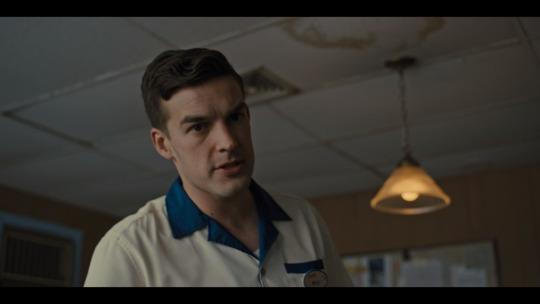

HAHAAAAAAAAAAAAAAAAAAAAA
#I FUCKING KNEW HE'D MAKE A CAMEO#as soon as i saw mat i started SCREAMING laughing#no mark cameo though :( sad#fnaf movie#fnaf movie spoilers#text post#fnaf#fnaf spoilers#matpat#the fact that his nametag says ness too. the fucking earthbound character#THE EASTER EGGS IN THIS MOVIE WERE SOOO GOOD#listen as an og fnaf fan....im thriving#not super into the series anymore but WOW this movie really catered to my high school age self lol
25K notes
·
View notes
Text
Lil Nas X is someone who tragically had to have a wildly successful music career in order to support his true passion, being a top quality internet troll
#Lil Nas X#shit post#I haven’t even listened to the new song#I saw the opening of the MV and I was like#sooo many people gonna be mad about it#what a genius
14K notes
·
View notes
Text
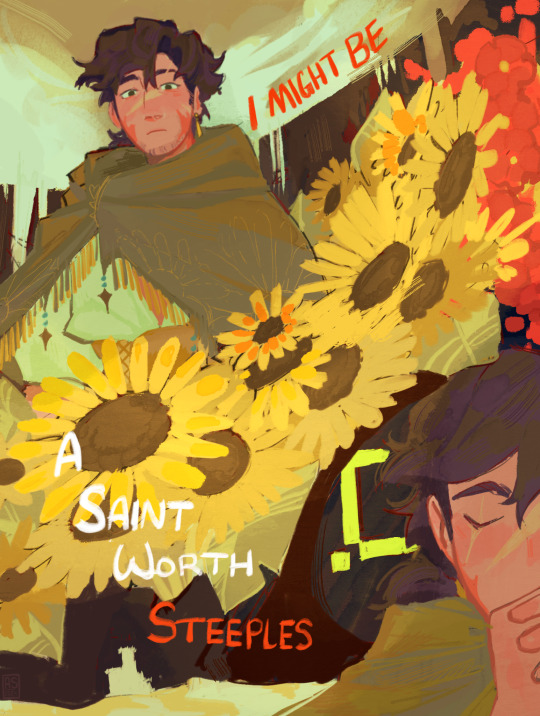
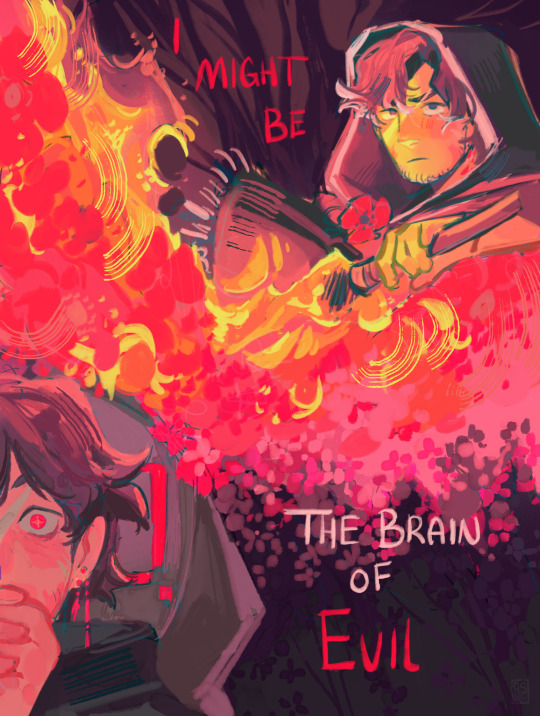
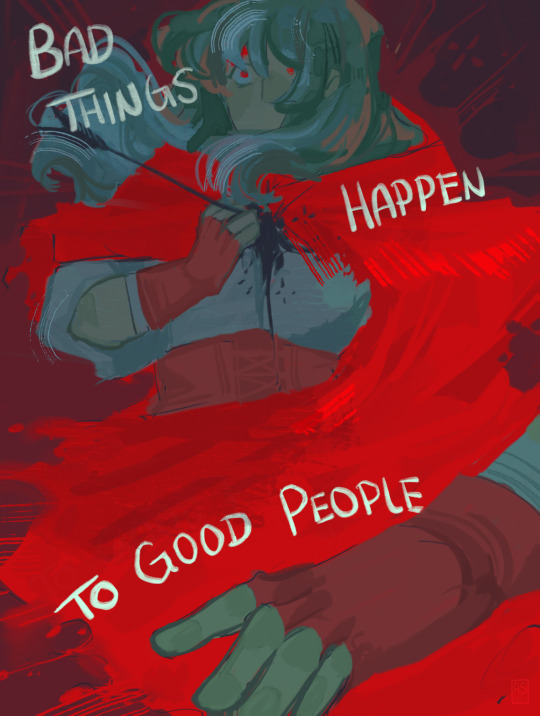
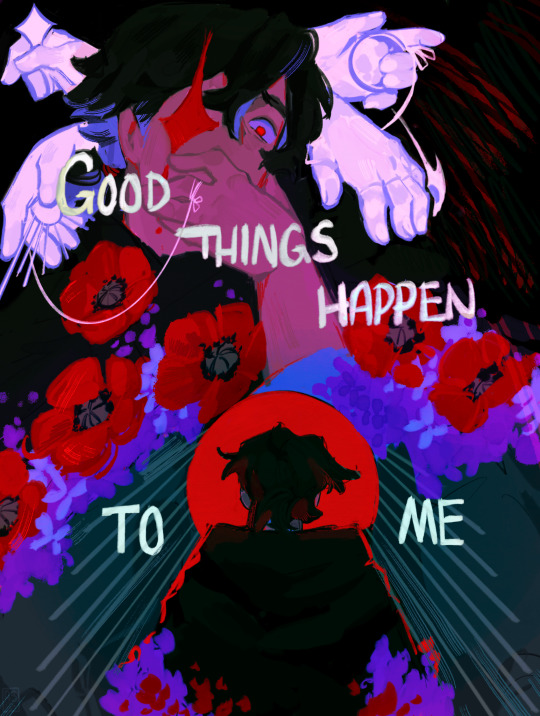
Chemical overreaction / compound fracture
#ive been working on this forever and its all bc of the colors#no idea if i like this or not but might as well post it#goodtimeswithscar#gtws fanart#pearlescentmoon#pearlescentmoon fanart#secret life smp#traffic smp#trafficblr#my art#cw eyestrain#cw blood#oh also my propaganda to go listen to the song ofc its so good
9K notes
·
View notes
Text
hate when a batman artist isn't committed to bruce's lame bat schtick... give that man a bat insignia on the bottom of his boots rn
#edit: check reblogs for the addition to this post 👍#listen. i can call it lame. hes a loser and its part of his character to be a loser. but he's also a committed cunt.#you think hes going to NOT have bat shoe imprints?? you think thats the one thing he's going to suddenly be subtle about?#commit to the campiness or get outta here!!!#ransom note
11K notes
·
View notes
Text
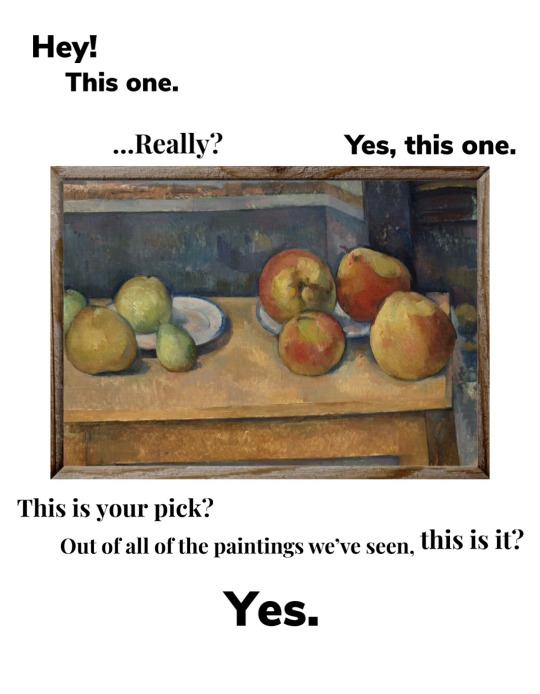
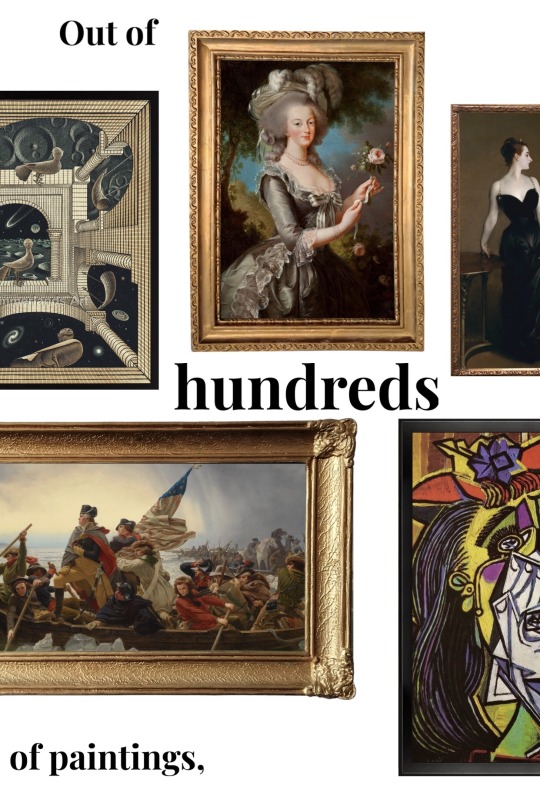

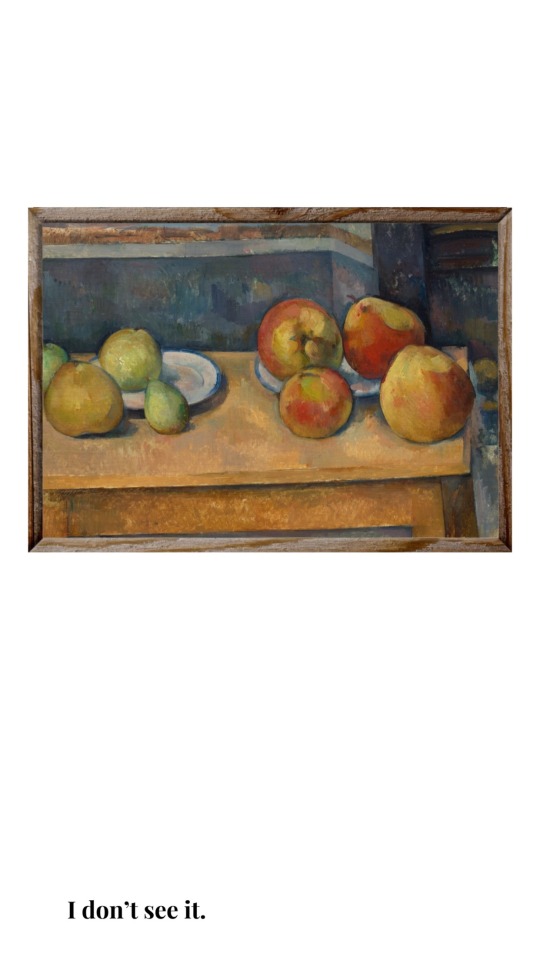
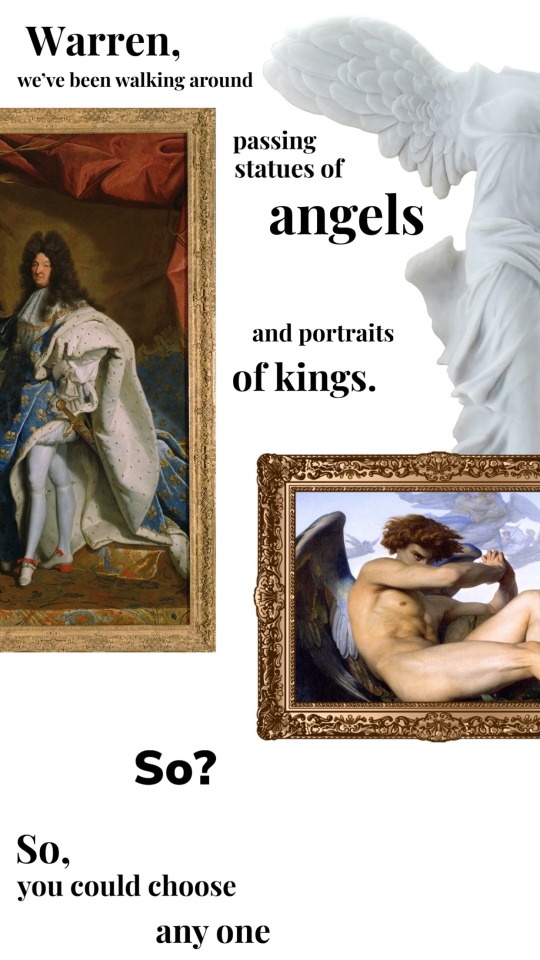
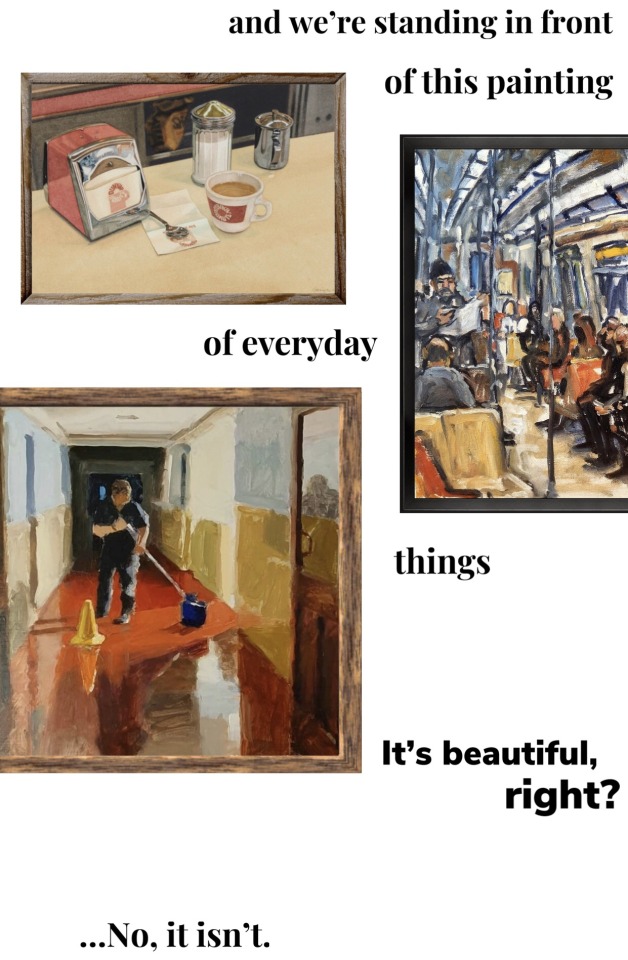
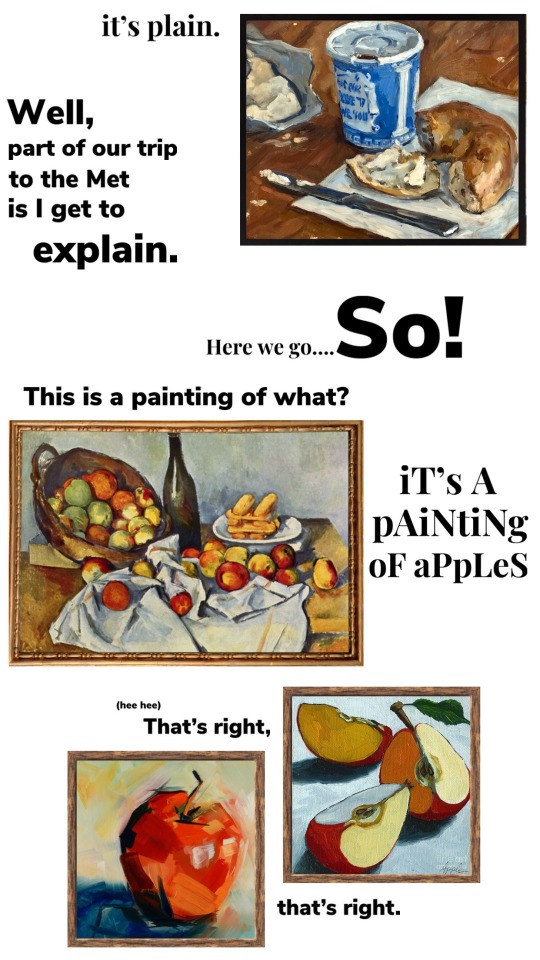
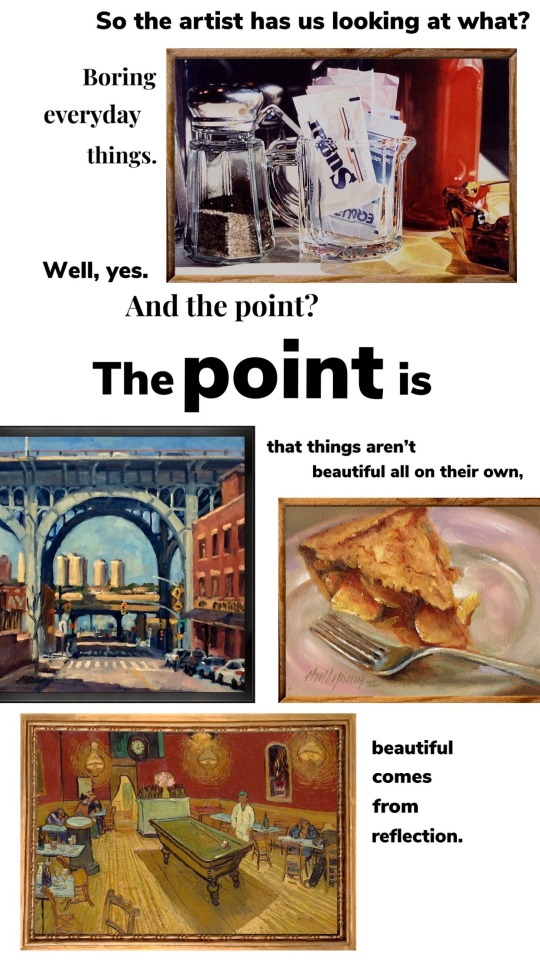


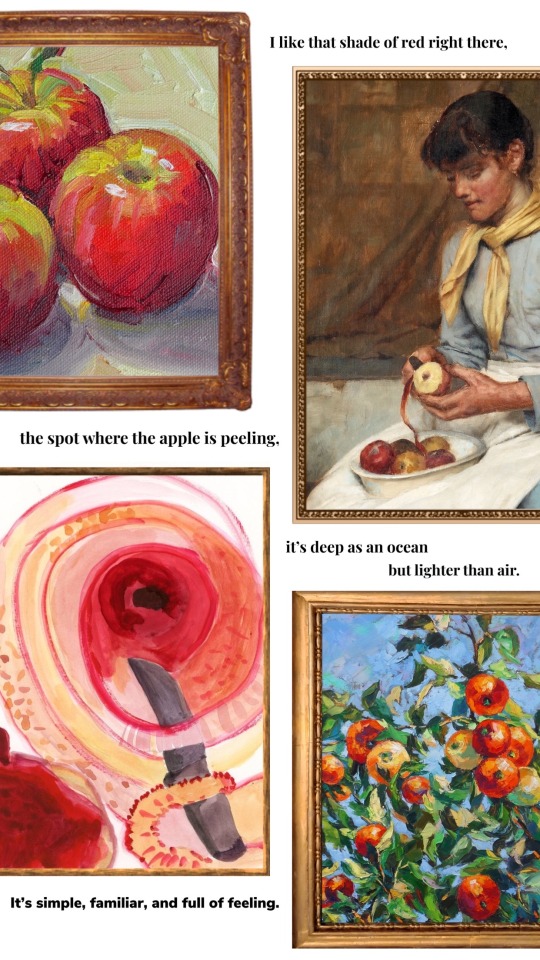
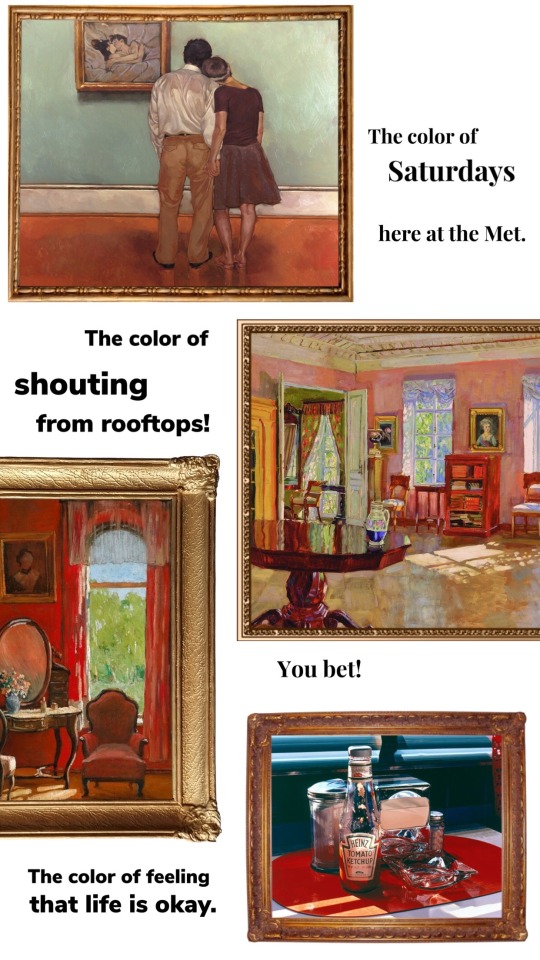

Beautiful from Ordinary Days
#EDIT: I added links to the post’s caption go click them.#I did this because people were mistaking the words as a poem. I love poems. it’s not a poem.#it’s a song from a musical that deserves more attention. go listen to the song. if you like it go listen to the musical. it’s fantastic#it’ll make you laugh and it’ll make you cry. could not recommend enough.#okay edit over. back to my og tags#long post#and I'm talking LONG like do you love the color of the sky long#today I am a nuisance to your dash#but it's in the name of art and beauty#ordinary days#musicals#paintings#art museum#post i made#i love lyrics#greatest hits
70K notes
·
View notes
Photo



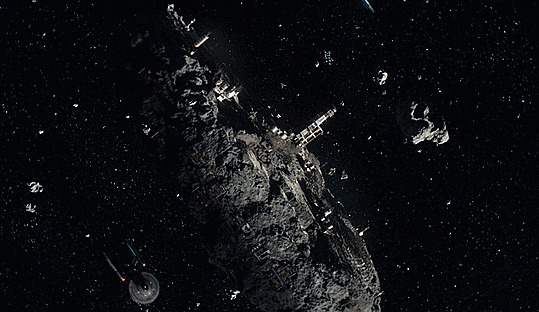

Cayuga and Enterprise at Neutral Zone Outpost 4, circa 2259.
#Star Trek#SNW#USS Enterprise#USS Cayuga#Constitution Class#Discoprise#Outpost#listening post#asteroid base#scifi#A Quality of Mercy#startrekedit#snwedit#GIF#my gifs#Danny and Renae watch SNW
81 notes
·
View notes
Text
Listening Post: John Coltrane/Eric Dolphy’s Evenings at the Village Gate
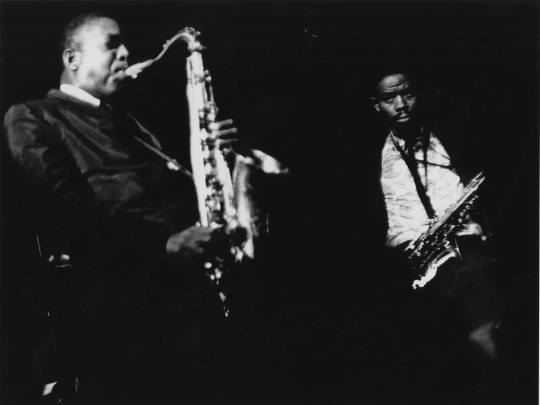
In 1961, John Coltrane was reaching a wider audience via his edited single version of the Sound of Music classic "My Favorite Things.” He was also, although it seems trite to say given the trajectory of his career, in a state of transition. Moving away from his "sheets of sound" period to exploring modality, non-western scales and polyrhythms which allowed him to improvise more deeply within the constraints of more familiar Jazz tropes.
His personal and musical relationship with Eric Dolphy was an important catalyst for the development of his sound. Dolphy was an important presence on Coltrane's other key album from 1961, Africa/Brass and here officially joins the quartet on alto, bass clarinet and flute. Evenings at the Village Gate was recorded towards the end of a month-long residency with a core band of Coltrane, Dolphy, Jones, McCoy Tyner on piano and Reggie Workman on bass. The other musician featured here, on "Africa,” is bassist Art Davis.
The recording captures the band moving towards the more incandescent sound that made Live at the Village Vanguard, recorded just a few weeks later in November 1961, such a viscerally thrilling album. The hit "My Favorite Things" and traditional English folk tune "Greensleeves" are extended into long trance-like vamps. Benny Carter's 1936 classic "When Lights Are Low" showcases Dolphy's bass clarinet and in the originals "Impressions" and particularly "Africa" the quintet hit almost ecstatic grooves. Dolphy's solos push Coltrane further into the spiritual free jazz that so divided later audiences. Dolphy's flute on "My Favorite Things" and especially his clarinet on "When Lights Are Low" are extraordinary, particularly the clarity of his upper register.
The highlight for me is the 22 minute version of "Africa" that closes the set. The two basses, bowed and plucked, Tyner's chordal work and solo, the slow build from the bass solo where the music seems to meander before Jones' explosive solo heralds the return of Dolphy and Coltrane improvising together on the theme, spiralling up the register, contrasting Coltrane's long slurries with Dolphy's staccato bursts which lead to the thunderous conclusion.
As an archivist, sudden discoveries in forgotten basement boxes never surprises and the excitement never gets old. The tapes of Evenings at the Village Gate were recently unearthed in the NY Public Library sound archive after having been lost, found and lost again. Recorded by the Village Gate's sound engineer Rich Alderson these tapes were not meant for commercial use but rather to test the room's sound and a new ribbon microphone. As Alderson says in his notes, this was the only time he made a live recording with a single mic and, yes, there have been grumblings from fans and critics about the sound quality and mix particularly the dominance of Elvin Jones' drums. For me, one the best things about this is that you hear how integral Jones is not just as a fulcrum for the other soloists but as an inventive polyrhythmic presence, playing within and around his bandmates. I know that many of the Dusted crew are Coltrane fans and would love to hear your takes on the music and whether the single mic recording affects your enjoyment in any way.
Andrew Forell
youtube
Justin Cober-Lake: There's so much to get into here, but I'll respond to your most direct question. The single-mic recording doesn't affect my enjoyment at all. I understand (sort of) the complaints, but I think they overstate the problem. More to the point, when I hear an archival release, I really want to get something new out of it. That doesn't mean I want a bad recording, but there's not too much point in digging up yet-another-nearly-the-same show (and I have nearly unlimited patience for Coltrane releases) or outtakes that give the cuts the same basic idea but just don't do it as well. I was really looking forward to hearing Coltrane and Dolphy interact, and nothing here disappoints. Having Jones so dominant just means I get to hear and think more about the role he plays in this combo. It would sound better to have the other instruments a little more to the fore, but it's not a problem (and actually Tyner's the one I wish I could hear a little better).
I think your topic suggests ideas about what these sorts of recordings — when made publicly available — are for. Is it academic material (the way we might look at a writer's journals or correspondence)? Is it to get truly new and good music out there? Is it a commercial ploy? Is it a time capsule to get us in the moment? The best curating does at least three of those with the commercial aspect a hoped-for benefit. This one probably hits all four, but I suspect the recording pushes it a little more toward that first category.
Bill Meyer: I’m playing this for the first time as I type, and I’m only to track three, so my (ahem) impressions could not be fresher.
First, I’ll say that, like Justin, I have a lot of time for Coltrane, and especially the quartet/quintet music from the Impulse years. The band’s on point, it sounds like Dolphy is sparking Coltrane, and Jones is firing up the whole band. Tyner’s low in the mix and Workman’s more felt than heard; the recording probably reflects what it was like to actually hear this band most nights, i.e. Jones and the horn(s) were overwhelming.
How essential is it? If you’re a deep student of Coltrane, there are no inessential records, and the chance to hear him with Dolphy, fairly early on, should not be passed up. But if you’re big fan, not a scholar, then you need to get The Complete 1961 Village Vanguard Recordings box and the 7-CD set, Live Trane: The European Tours, before you drop a penny on this album. And if you’re just curious, start with Impressions. This group is hardly under-documented. The sound quality, while tolerable, is compromised enough to make Evenings At The Village Gate less essential than everything I just mentioned.
I’m only just now starting to play “Africa,” so I’ll check in again after I play that.
“Africa” might be the best reason for a merely curious listener to get this album. It’s very exploratory, the bass conversation is almost casual (not a phrase I use much when discussing Coltrane), and they manage to tap into the piece’s inherent grandeur by the end.
“Africa” is a great example of this band working out what they’re doing while they’re doing it.
Andrew Forell: On Justin’s points about the function of archival releases, I’ve been going back and forth on the academic versus time capsule/good music uncovered question. There is a degree of cynicism and skepticism in these days of multidisc, anniversary box sets in arrays of tastefully colored vinyl which seemed designed for the super(liquid)fan and cater to a mix of nostalgia and fetish. Having said that specialist archival labels have done us a great service unearthing so much "lost" and under-represented music. On one hand I agree with your summation and to Bill’s point, yes this quintet has been pretty thoroughly documented and yes the Vanguard tapes would be the place to start. But purely as a fan I am more interested in live recordings than discs of out- and alternative takes. I’m thinking for example of the 1957 Monk/Coltrane at Carnegie Hall and Dolphy’s 1963 Illinois concert especially his solo rendition of “God Bless the Child," recordings that sat in archives for 48 and 36 years respectively.
youtube
By contrast, the other recent Coltrane excavation, Both Directions at Once is wonderful but I’m not listening to it as an academic exercise, taking notes and mulling over the different takes, interesting as they are. I approach Evenings as another opportunity to hear two great musicians, in a live setting, early on in their short partnership. As Justin says, this aspect doesn’t disappoint. I agree with Bill that the mix is close to what you would you hear in the room, the drums and horns to the fore. All this is a long way to a short answer. A moment in time, a band we’ll never experience in person and when all is said and done, 80 minutes of music I’d otherwise not hear.
Jonathan Shaw: As a relative newb to this music, I can't contribute cogently to discussions of this set's relative value. Most of the Coltrane I've listened to closely is from very late in his life, when he was playing wild and free--big fan of the set from Temple University in 1966 and the Live at the Village Vanguard Again! record from the same year. None of that is music I understand, but I feel it and respond to it strongly. The only Dolphy I've listened to closely is Out There. So I'll be the naif here.
I need to listen to these songs another few times before I can say anything about them as songs, but I really love the right-there-ness of the sound. I like being pushed around by the drums and squeezed between the horns (the first few minutes of "Greensleeves" are delightful in that respect). Maybe I'm lucky to come to the music with so little context. It's a thrill to hear the playing of these folks, about whom there is so much talk of collective genius. Perhaps because my ears are so raw to these sounds, I feel like that talk is being fleshed out for me.
Jim Marks: I think that this release has both academic and aesthetic (if that’s the right word) significance for Dolphy’s presence alone. I am more familiar with the original releases than the various re-releases from the period, but it’s my impression that there just isn’t that much Dolphy and Trane out there; for instance, I think Dolphy appears on just one cut of the Village Vanguard recordings (again, at least the original release). In particular, I’ve heard and loved various versions of “Favorite Things,” but this one seems unique for the six-plus-minute flute solo that opens the track. The solo is both brilliant in itself and creates a thrilling contrast with Coltrane when he comes in. This track alone is worth the price of admission for me.
Marc Medwin: I agree concerning Dolphy's importance to these performances, and while there is indeed plenty of Coltrane and Dolphy floating around (he took part in the Africa/Brass sessions that gave us both Africa and a big band version of "Greensleeves") his playing is really edgy here. Bill is right to point toward the sparks Dolphy's playing showers on the music. Yes, the flute on "My Favorite Things" is really stunning. He's all over the instrument, even more so than in those solos I've heard from the group's time in Europe.
Jon, I'd suggest that there's a strong link between the albums you mention and the Village Gate recordings we're discussing, a kind of continuum into which you're tapping when you describe the excitement generated by the playing. The musicians were as excited at the time as we are on hearing it all now! It was all new territory, the descriptors were in the process of forming, and while Cecil Taylor, Ornette Coleman, Sun Ra and a small group of kindred spirits were already exploring the spaceways, they were marginalized. That may be a component of the case today, but it's tempered by a veneration unimaginable at the time. That's part of the reason Dolphy lived in apartments where the snow came through the walls. Coltrane had plenty to lose by alienating the critics, but ultimately, it did not stop his progress. These recordings mark an early stage of that halting but inexorable voyage. With the possible exception of OM, Coltrane's final work never abandoned the tonal and modal extremes at which he was grabbing in the spring and summer of 1961.
Jennifer Kelly: Like Jon, I'm not well enough versed in this stuff to put it context or even really offer an opinion. I'm enjoying it a lot, and I, also, like the roughness and liveness of the mix with the foregrounded drums. But I think mostly what I am drawn to is the idea that this show happened in 1961, the year I was born, and that these sounds were lost for decades, and now you can hear them again, not just the music but the room tone, the people applauding, the shuffling of feet etc. from people who are almost all probably dead now. It seems incredibly moving, and I am also taken by the part that the library took in this, in conserving this stuff and forgetting it had it and then rediscovering it. In this age of online everything-available-all-the-time, that seems remarkable to me, and proves that libraries are so crucial to civilization now and always, even as they're under threat.
Marc Medwin: A real time machine, isn't it? We are fortunate that we have these documents at all, and yes, the story of the tapes resurfacing is a compelling one! To your observations, audience reaction seems pretty enthusiastic to music that would eventually be dubbed anti-jazz by prominent members of the critical establishment!
Bill Meyer: I can imagine this music being more sympathetically received by audiences experiencing its intensity, whereas critics might have fretted because it represented a paradigm shift away from bebop models, so they had to decide if it was jazz or not.
It is amusing, given the knowledge we have of what Coltrane would be playing in five years, that this music is where a lot of critics drew a line in the sane and said, "this is antijazz."
Jon Shaw: Yes, Bill, that seems bonkers to me. I am particularly moved by the minutes in that 1966 set at Temple when Coltrane abandons his horn altogether and starts beating his chest and humming and grunting. Wonder what the chin-stroking jazz authorities made of that.
Given my points of reference, this set sounds so much more musically conventional. But the emotional force of the music is still immediate, viscerally present. Beautifully so.
youtube
Andrew Forell: In retrospect, all those arguments seem kind of crazy. Yesterday’s heresies become tomorrow’s orthodoxies but what we’re left with is, as Jonathan says, the visceral beauty of Coltrane’s striving for transcendence and his interplay with Dolphy’s extraordinary talent which we hear here working as a catalyst for Coltrane. As Marc and Jen note the audience is there with them..
Come Shepp, Sanders & Rashid Ali, the inquisitors’ fulminations only increased and you think what weren’t you hearing?
Marc Medwin: I was just listening to a Jaimie Branch interview where she's talking about her visual art, about throwing down a lot of material and finding the forms within it. I think that might be another throughline in Coltrane's and certainly Dolphy's work, a gradual discarding of traditional forms and poossibly structures based on what I hate to call intuition, because it diminishes the process.
Then, I was thinking again about our discussion of the critics. I see their role, or their assessment of that role, as a kind of investment without reward, and yeah, it does seem bonkers now! Bill Dixon once talked about how the writers might spend considerable time and expend commensurate energy learning to pick out "I Got Rhythm" on the piano, and they're suddenly confronted with... well, the sounds we're discussing! What would you do, or have done, in that situation? It's really easy for me, like shooting fish in the proverbial barrel, to
disparage critical efforts of the time, especially in light of the ideas and philosophies Branch and so many others are at liberty and encouraged to play and express now, but I wonder how I would have
reacted, what my biases and predilections would have involved at that pivotal moment.
Ian Mathers: The points about historical reception are really interesting, I think. There's a famous (in Canada!) bunch of Canadian painters called the Group of Seven, hugely influential on Canadian art in the 20th century and still well known today. In all the major museums, reproductions everywhere, etc. They were largely landscape painters, and while I think most of the work is beautiful, it's so culturally prominent that it runs the risk of seeming boring or staid. I literally grew up with it being around! So it was a delightful shock to read a group biography of them (Ross King's Defiant Spirits: The Modernist Revolution of the Group of Seven, if anyone is hankering for some CanCon) and see from contemporary reviews that people were so shocked and appalled by the vividness of their colour palettes and other aesthetic choices that they were practically called anti-art at the time. It's not surprising to me that this music would both attract similar furore at the time and, from the vantage point of a new listener in 2022 who loves A Love Supreme and some of the other obvious works but hasn't delved particularly far into Dolphy, Coltrane live, or this era in jazz in general (that would be me), be heard and felt as great, exciting, but not exactly formally radical stuff.
I don't think I would have noticed much about the recording quality were people not talking about it. "My Favorite Things" seems to have the overall volume down a bit, but still seemed pretty clear to me (agree with the assessments above; Coltrane, Dolphy, and Jones very forward, others further back although even when less prominent I find myself 'following' Tyner's work through these tracks more often than not), and starting with "When Lights Are Low" that seems to be corrected. It actually sounds pretty great to me! Although I absolutely defer to Bill's recommendations for better starting places for serious investigations, I can also say as a casual but interested fan who tends to quail in the face of box sets and other similarly lengthy efforts this feels from my relatively ignorant vantage like a perfectly nice place to start. I like Justin's rubric for why these releases might come about (or be valuable), but if I hadn't heard any Coltrane and you just gave me this one, my unnuanced perspective would just be something like "wow, this is great!" But maybe I'm underthinking it. And having that reaction doesn't mean that others aren't right to recommend better/more edifying entry points, or that having that reaction shouldn't lead one to educate oneself.
Jonathan Shaw: Maybe it's a lucky thing for me to be so poorly versed in Coltrane's music, not just in the sense of having listened to precious little of it. I am even less familiar with the catalog of music criticism, which in jazz seems to me voluminous, archival in scale. But even with music I'm extensively engaged with — historically, critically — I try to understand it and also to feel it. I can't imagine not feeling what's exciting in this music, energizing and challenging in equal measure.
Like Marc, I don't want to recursively impugn the critical writing of folks working in very different contexts. But I don't like it when the thinking gets in the way of the music's emotional and aesthetic force, which to me feels unmistakably powerful here.
Ian Mathers: Yeah, maybe that's a good distinction to draw; I can imagine in a different time and place feeling like the music here is more radical or challenging than it sounds to us now. But I can't quite imagine not getting a visceral thrill out of it.
Marc Medwin: And doesn't this contradiction get at the essence of what we're trying to do? Those of us who've chosen to write about music are absolutely stuck grasping at the ephemeral in whatever way we're able! How do we balance the ordering of considerations and explanations in unfolding sentences with the spontaneity of action and reaction that made us pick up a pen in the first place?! We add and subtract layers of whatever that alchemical intersection of meaning and energy involves that hits so hard and compels us to write! In fact, the more time I'm spending with these snapshots of summer 1961, the more I decamp from my own philosophizing about critical relativity to sit beside Ian. The stuff is powerful and original, and the fact that so much of what we're hearing now is a direct result of those modal explorations and harmonically inventive interventions says that the dissenting voices were fundamentally, if understandably, wrong! It could be that the musician can be inclusive in a way the writer simply can't.
I'm listening to "Africa" again, which is for me the disc's biggest single revelation in that it's the only concert version we have, so far as I know. How exciting is that Jones solo, and how much does it say about his art and the group's collective art?!! He starts out in this kind
of "Latin" groove with layers of swing and syncopation over it, he
goes into a melodic/motivic thing like you'd eventually hear Ginger
Baker doing on Toad, and then eases back into the groove, all (if no
editing has occured) in about two minutes. He's got the music's
history summed up in the time it would take somebody to get through a proper hello!! Took me longer to scribble about it than for him to play it!!
Justin Cober-Lake: I'm not sure if Marc is making me want to put down or pick up a pen, but he's definitely making me want to listen to "Africa" again. (Not that I needed much encouragement.)
Andrew Forell: Africa/Brass was the first jazz album I bought. Coming from post-punk, I found it immediately the most exciting and challenging music I’d heard and it set me off on my exploration of Coltrane, Dolphy, Coleman and their contemporaries. This version of “Africa” is a highlight for me also for all the reasons Marc, Ian and Jon have talked about.
Bill Meyer: Yeah, "Africa" is quite the jam!
A thought about critical perspective — our discussion has gotten me thinking, not for the first time, about the impacts of measures upon experience, and the limits of critical thinking when I’m also an avid listener. If I’m listening for “the best” Coltrane/Dolphy, in terms of sound quality or most focused performances, this album isn’t it. But if I’m looking for excitement, this album has loads of it, and that might be enhanced by the drums-forward mix.
#listening post#dusted magazine#john coltrane#eric dolphy evenings at the village gate#jazz#reissuemmc#mccoy tyner#reggie workman#derek taylor#art davis#new york public library#andrew forell#justin cober-lake#bill meyer#africa#jonathan shaw#jim marks#mark medwin#jennifer kelly#ian mathers#Youtube
14 notes
·
View notes
Text


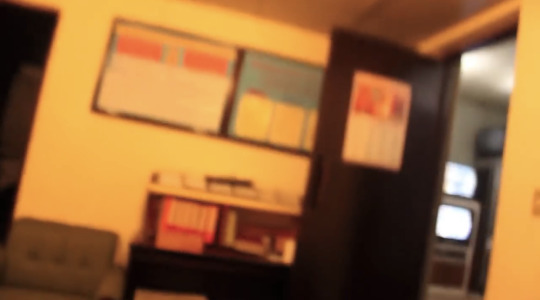

Yanggakdo International Hotel in North Korea 🇰🇵 5th Floor surveillance equipment apparently used to observe guests' rooms.
#korea#korean#north korea#DPRK#surveillance#propaganda#NK#yanggakdo hotel#foreigners#tourism#tourist#guest#spy#spies#listening post#kim jong un
1 note
·
View note
Text
PSA: i keep seeing posts about staying cool in extreme heat that include advice like "gatorade is bad actually!" and "don't drink fruit juice it'll just dehydrate you!" and neither of these are true!
regarding fruit juice: there's apparently a misconception that Any Sugar At All will dehydrate you, and that's simply not true. yes, sugar will make you pee more when consumed in large amounts, but 1) the natural sugar in fruits won't do this to you 2) great news! a lot of fruit juices exist without any added sugar in them! 3) honestly even having a glass of the fruit juice with added sugar won't completely dehydrate you as long as you're also drinking water throughout the day. if its hot you deserve a cold treat of a drink!!! can't go wrong with fruit juice!!!
regarding gatorade: maybe this isn't an every day drink, but guess what: if it's 110F/40C or hotter outside, and you don't have AC, or you're moving around a lot outside of the AC, and you're sweating buckets: that's when you drink a gatorade.
gatorade exists to replenish all the electrolytes (salt) and glucose (sugar) that you sweat out. YES it is meant for athletes to drink during intensive work outs and not necessarily for people who aren't doing that kind of exercise. BUT GUESS WHAT! when you're sweating buckets because you had to walk to the bus in extreme heat, that's intensive exercise. please feel free to drink a gatorade after that! that's its intended use case!!!!
no: neither of these drinks should be a total replacement for water. but drinking a lot of water and then treating yourself to a fruit juice with lunch is a good idea!!! drinking a gatorade becuase you just had to walk for 20 minutes in the heat is a good idea!!!
Please Stop Spreading Misinformation About Drinks!!! It's fine if you drink things that aren't water!!!! Yes you should probably always be drinking water but drinking something else As Well isn't going to hurt you!!!! okay!!!! its fine!!!!!!
honestly so long as you are consistently getting Any (non-alcoholic) fluids in you, you're doing great!!!!!! okay!!!! i love you stay safe <3
#also: drinking A Soda or A Coffee isn't going to completely dehydrate you if you're drinking other fluids tbqh!!!#its fine!!!!! its fine!!!!!#drinks#heat#dehydration#this post exists because i'm mad at misinfo but also#this is for my homies who hate the taste of water and struggle to stay hydrated#because people have told them over and over again You Must Absolute Drink Water And Nothing Else and so they just don't drink anything#listen!! hey!!! whoever told you that was lying!!!!#drinking Any Fluids At All (yes even with caffeine!!) is better than Not Drinking Anything#please hydrate!!!! it's okay if that hydration isn't water!!!!#honestly i tried to be extremely non confrontational in this post but im pretty sure i've seen people suggest flavored water packets#but say no fruit juice ever. and that's insane.#it's all fluids baby!!!!!!!!!!!!!!#so long as you are drinking fluids you are combatting dehydration#YES water is the best option HOWEVER. if you drink things that aren't water that's also okay! i promise!!!!!!!!
41K notes
·
View notes
Text
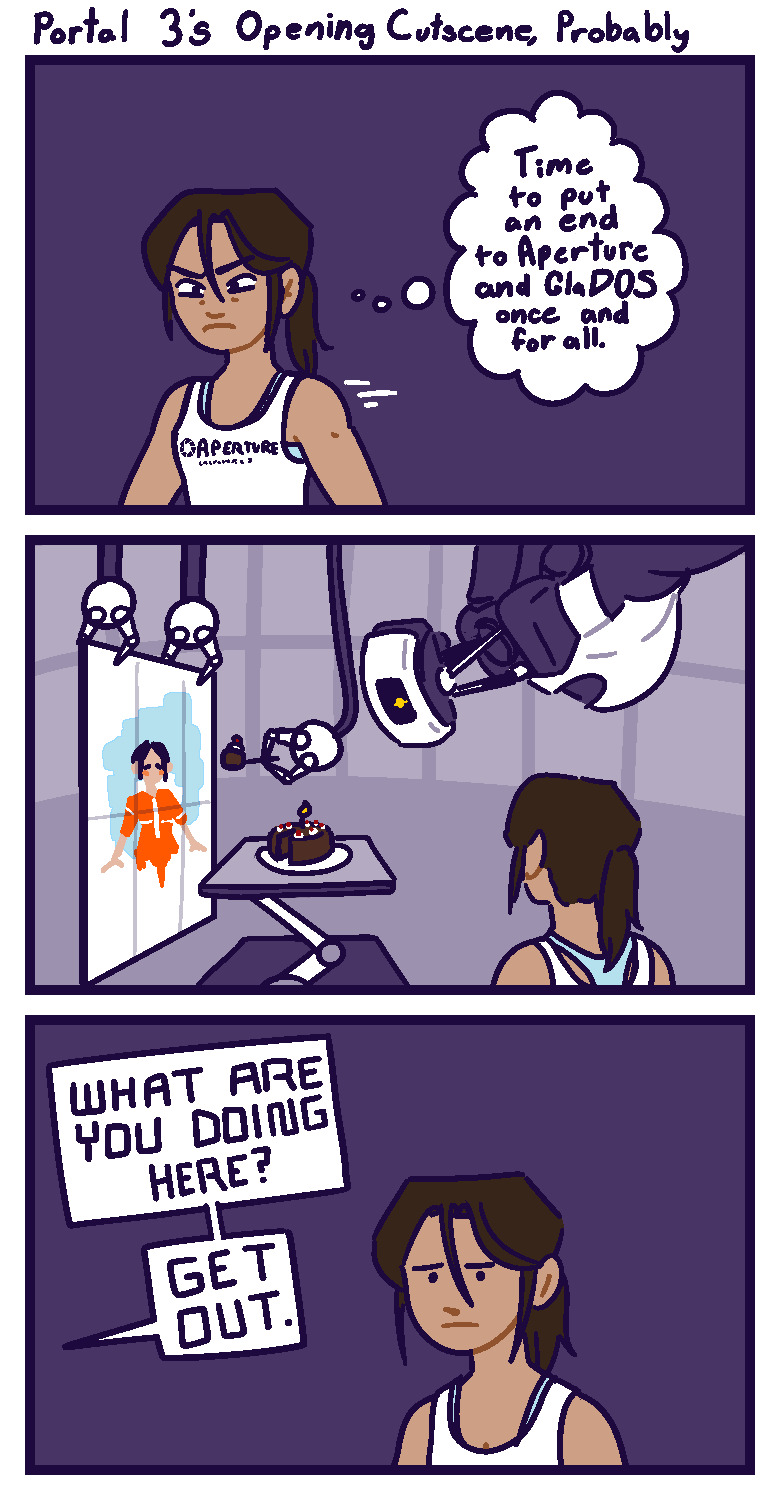
been replaying the Portal series I think this is where its heading
#i haven't drawn in like. half a month. which listen i know i don't post much here but i do draw a lot#i have another blog. but also sometimes i just don't post things. i draw for myself#just got burnt out from working on an animation final 😔#so anyway. eased myself back in with a silly comic about portal#my irl saw my shitty sketch and thought glados was painting chell which is very funny to me.#chelldos#but like. unrequited. glados is obsessed with chell. chell is not having a good time#portal#chell#GlaDOS#GlaD0S#my art#og post#1k#5k#10k#20k#edit: i made this post almost a year ago and it haunts me. theres a typo. chell is out of character.#because i couldn't come up with a good reason for her to be there in the first place#and this was a shitty ms paint replicating drawing that i did just to get back into drawing#i didn't think it would gain much attention#i was Wrong#anyway someone in the comments said this is what happens when you speedrun thats an infintely better setup for the punchline#EDIT 2: ok i fixed it fuck you
25K notes
·
View notes
Text
listening to wtnv in 2024 makes me understand immediately why tumblr over a decade ago thought this shit was the coolest thing ever. it casually but flawlessly parodies the us surveillance state, ultra-militarized police forces, inane human resource bureaucracies and the blasé of the suburban middle class all within the span of three episodes with a very tongue in cheek slice of life format that doesn’t sound possible on paper but is executed absolutely absurdly well
#welcome to nightvale#welcome to night vale#personal post#cecil palmer#I’m very eager to continue listening to this as I work
6K notes
·
View notes